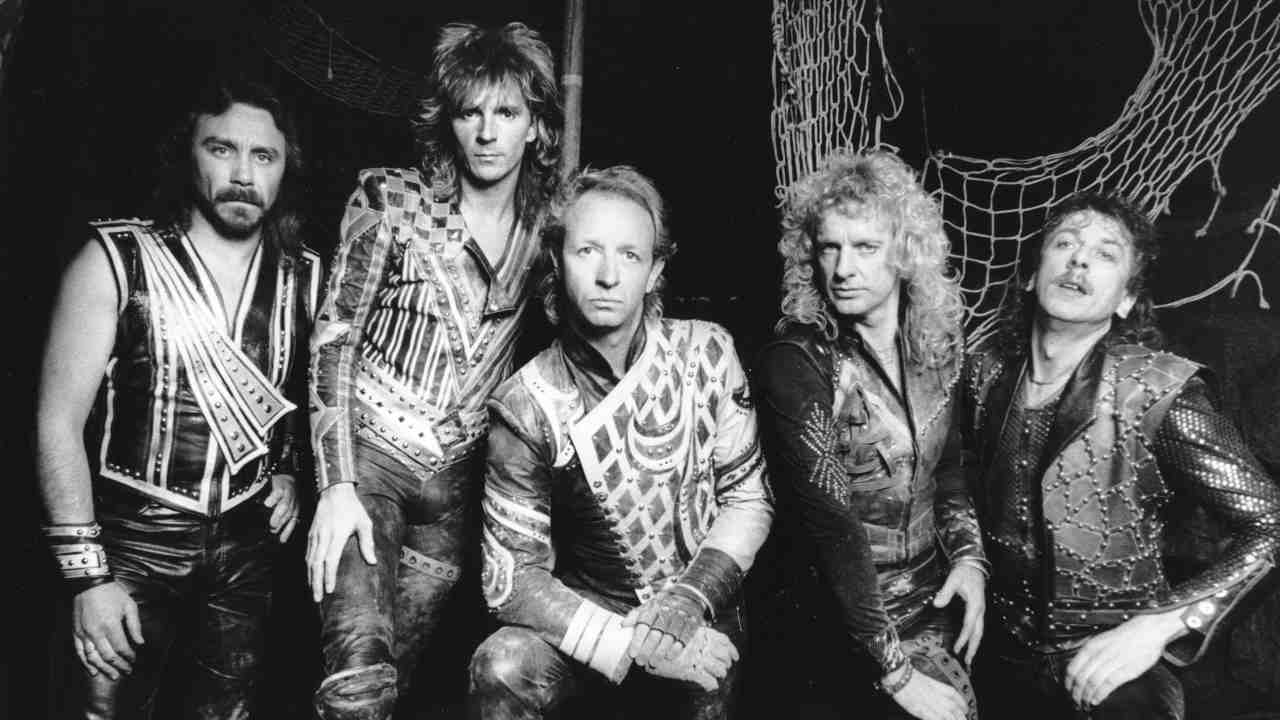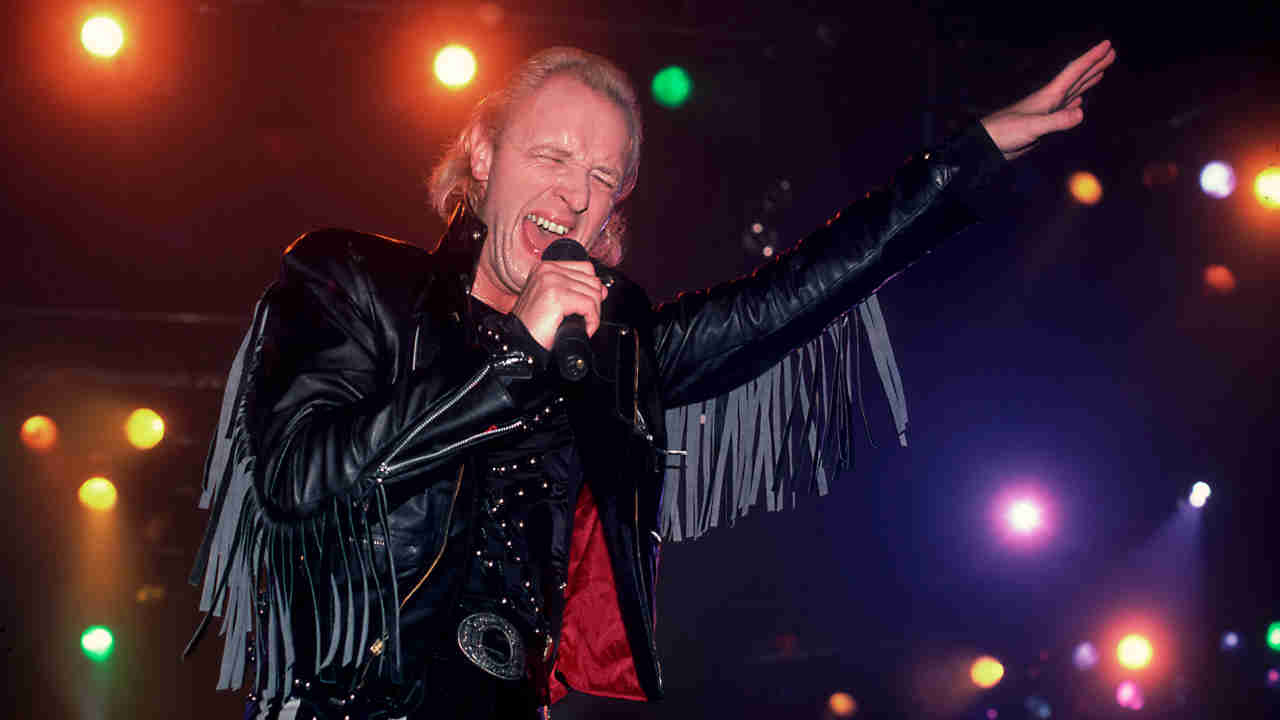Because of albums reminiscent of British Metal and Screaming For Vengeance, Judas Priest had ascended to metallic’s premier division by the mid-80s. However they hit a bump within the highway with 1986’s Turbo, an album that noticed the veteran band making an attempt out new expertise however left many followers chilly . In 2017, singer Rob Halford and bassist Ian Hill regarded again on the darkness and tragedy that formed their most divisive report.
Turbo is the sore thumb within the Judas Priest catalogue. Obtained knowledge pitches it someplace between a cynical sell-out with one eye on the pop market and outright profession suicide.
Neither is true. Turbo might have been a departure on the floor, however at coronary heart it was a traditional Priest album. On a industrial stage, it was removed from a flop due to mainstream American radio and MTV selecting up on the singles Turbo Lover, Locked In and the anti-censorship broadside Parental Steerage. “It misplaced us some associates,” says Priest bassist Ian Hill, a mainstay of the band since their very starting in Birmingham on the finish of the Nineteen Sixties. “But it surely made us as least as many as we’d misplaced.”
Priest have been coming off the again of a stellar run of success once they started work on Turbo. Whereas their late-70s and early-80s albums had enshrined them as certainly one of Britain’s pre-eminent metallic bands, the platinum-plated one-two of 1982’s Screaming For Vengeance and ’84’s Defenders Of The Religion had turned them into bona fide rock stars in America.
“We have been on prime of the world,” says Rob, a person whose drily lugubrious method is amusingly at odds along with his Steel God persona. “After plodding away for years, we’d out of the blue reached that place all bands attempt to get to, which is success. It was an incredible time, not just for Priest however for metallic generally.”
After touring Defenders Of The Religion, the band gave themselves a much-needed break. Once they reconvened in Marbella in southern Spain in early 1985, they have been eager to throw themselves again into the fray. However the very last thing they needed to do was merely repeat previous glories.
“Some folks would have been completely over the moon if we’d finished one other Defenders Of The Religion,” says Ian. “However we felt like we’d reached the tip of the road with that. Some bands get a formulation they usually stick with it, and other people love them for it. However we’ve at all times moved forwards.”

As they soaked up the solar in Marbella, they started to understand that issues had modified since that they had been away. Launched just some years earlier, MTV had turn into a music trade powerhouse with the ability to make or break bands. A lot of Priest’s friends had latched onto this and altered their method to suit this revolutionary new format, chief amongst them ZZ Prime and Billy Idol, who had begun incorporating the newest expertise into their sound and serving up eye-catching movies to slot in the heavy rotation slots. “We have been positively conscious of what was happening with MTV,” says Rob. “It was a gamechanger. It completely modified the face of music, which in all probability had some affect on the final end result of Turbo.”
Understandably, when digital instrument firm Roland approached Priest to see if they’d be all for being the folks to check out a model new guitarsynthesizer that they had developed, the band jumped on the likelihood.
“It mainly took the simple sound that you just usually get in the event you plug a guitar right into a Marshall amp, however allow you to alter the sound utterly,” says Rob. “It may provide you with a non-guitar sound. That was on the coronary heart of Turbo. And that, I feel, was a part of the pushback from the purists in metallic: ‘Why are you messing with the sound? That’s not the Priest we wish to hear.’”
The band weren’t oblivious to the ramifications of what they have been planning once they flew to the Bahamas to start work on the album at Nassau’s Compass Level Studios with longtime producer ‘Colonel’ Tom Allom, however they have been nonetheless decided to push ahead. It wasn’t the one radical choice that they had made. The unique plan was that the brand new album could be a double, titled Twin Turbos.
“We needed a double album for the worth of a single one,” says Ian. “The label weren’t glad about that. They couldn’t manufacture the album and flog it for what we needed them to promote it for. So about midway by way of the writing course of, we determined to go along with it as a single album.”
A number of the tracks written for Twin Turbos would seem on their subsequent album, 1988’s Ram It Down, whereas others would function as bonus tracks on subsequent reissues.

However clashes with their report label have been the least of Rob’s worries. The singer had his personal battles to take care of. Ask him right now what somebody may need seen in the event that they’d have walked in midway by way of the periods, and he laughs drily.
“I’d in all probability have been within the nook with a bottle of Jack Daniel’s and a mound of coke,” he says. “I used to be out of my fucking tree. That’s the place I used to be at personally. It was some extent the place I wanted assist. I don’t understand how the blokes coped with me.”
“All of us went excessive within the 80s,” says Ian. “If you happen to weren’t going excessive, there was one thing fallacious. However we didn’t realise fairly how far gone Rob was.”
Rob’s frame of mind wasn’t helped by the unique location. “There have been large distractions,” he says. “We’d begin work at six o’clock at evening, then Tom Allom would have his gin and tonic and that was the tip of the session. We’d all go down the pub and get loaded. We needed to get the hell out of the Bahamas. Any individual stated, ‘Why don’t we go to Miami as an alternative?’ Oh yeah, nice concept. ’Cos there have been no distractions there both. Ha ha ha, oh my god.”
As a substitute, the band moved their base of operations to Los Angeles. It was there that Rob checked into rehab. “I got here out after 30 days and my life had modified in 1,000,000 methods,” he says. “The vital half was my capability to grasp that music is an important factor in my life and that I don’t want another chemical affect to do what I must do.”
He might have been clear and sober, however life had another tragic twist to throw at him. In 1986, Rob’s boyfriend on the time killed himself in entrance of the singer. He’s reluctant to speak about specifics, however his voice takes on an understandably solemn notice when he remembers the influence it had on his life.

“I used to be with somebody who was additionally coping with their very own self-destructive challenges,” he says. “That was my pledge, within the reminiscence of that individual, to remain clear and sober. In reality, I simply handed my thirty first birthday final week. However drug dependancy and alcoholism is sort of a curse, man. Bands ask me concerning the drink and the medicine, and I say, ‘Fucking do it, it’s a ceremony of passage – I hope you might have an excellent time with it and I hope it doesn’t kill you.’ As a result of it could possibly, and it does.”
Satirically, given Rob’s personal private turmoil, Turbo is resolutely uplifting, defiant and even sex-obsessed. It’s there within the titles: Turbo Lover; Sizzling For Love; Reckless; Wild Nights, Sizzling And Loopy Days. Even the album’s cowl illustration of a lady’s hand clutching a gear stick is a barely disguised visible innuendo.
It additionally options Parental Steerage, a winking dig on the PMRC, the censorship group who had included Priest’s music Eat Me Alive on their so-called ‘Filthy Fifteen’ – an inventory of songs that they claimed threatened the ethical cloth of America. The PMRC efficiently campaigned to place ‘Parental Steerage’ stickers on albums containing express materials.
“We couldn’t consider our ears after we heard about it,” says Rob. “It’s a kind of issues that solely occurs in America. I bear in mind the day we stated, ‘We must always write a music referred to as Parental Steerage. Take a stroll in my sneakers and see what you’re afraid of – it’s not actual. Because it seems, Turbo was a industrial success, one of many greatest ones Priest had. So the PMRC factor didn’t have any knock-on impact.”
That industrial success should have appeared a great distance off when the album was launched in April 1986. Preliminary reactions within the press have been at finest baffled and at worst outright hostile. Extra importantly, its synthesized sounds alienated a bit of their fanbase who needed Priest’s conventional steel-plated twin guitar assault.

“It was a little bit of a kick within the balls. It’s not good to make a report and someone goes, ‘That is shit.’ However that is the balancing act – it’s a must to write from the guts, for your self. You want the chance to specific your self and bang into issues whenever you do.”
Age has been variety to Turbo. Its unconventional method might have scared the horses on the time, however right now it sounds shockingly fashionable. And its opening 4 tracks – Turbo Lover, Locked In, Non-public Property and Parental Steerage – are stone chilly pop-metal classics, guitar-synths or not.
“It was a grand experiment,” says Ian. “We weren’t certain what the response could be, however we believed we have been doing the correct factor. And that’s why it’s trustworthy.”
“The unique kickback has mellowed over time,” provides Rob. “Individuals recognize it now for the songs. They’ve embraced it. We may bang out any of these tracks dwell now they usually’d do the enterprise. Judas Priest are this band that has many metallic heads connected to its shoulders, and Turbo has turn into a part of the legend.”
Initially printed in Steel Hammer concern 281, February 2017

